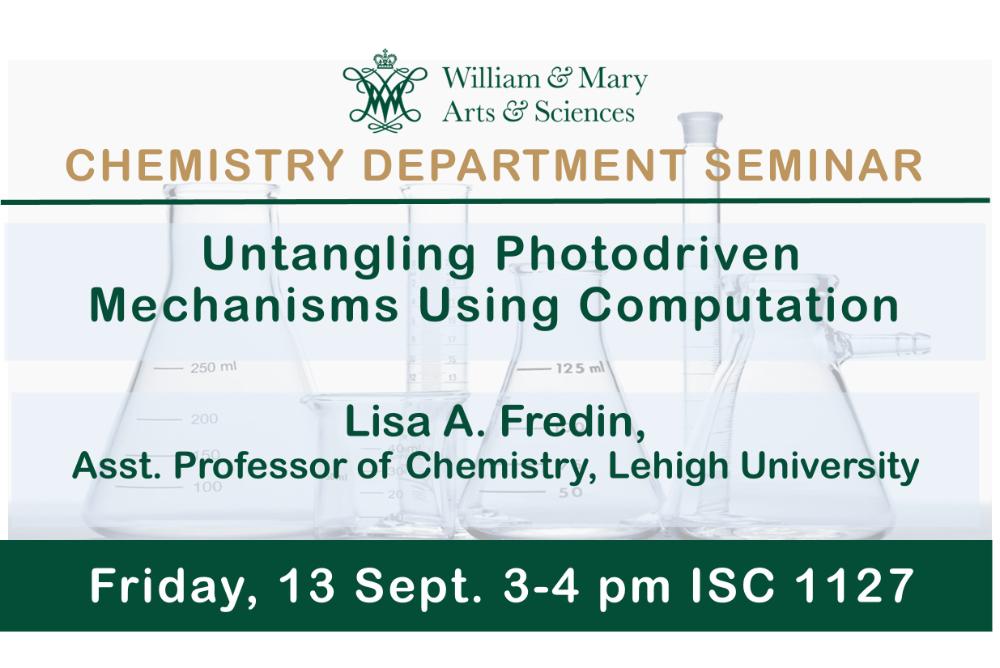Alumnae Engagement
[PAST EVENT] Untangling Photodriven Mechanisms Using Computation, Lisa Fredin, Lehigh University
Location
Integrated Science Center (ISC), Room 1127540 Landrum Dr
Williamsburg, VA 23185Map this location

Our first Cheminar for the semester is: Untangling Photodriven Mechanisms Using Computation
Photoreactions are often unpredictable and unwanted reactions that are hard to control because of the large driving force of light. Modern supercomputers allow chemists to predict the photochemistry of molecules. We explore multidimensional potential energy surfaces of the photoreactivity of molecular catalysts and photoswitches using quantum mechanics to build mechanistic understanding. We developed a new computational pump-probe absorption method that produces transient spectra that can be directly compared to experimental ultrafast transient absorption spectroscopy (TAS). TAS measures the complex landscape of relaxation paths of photoexcited states which are difficult to untangle in general. This new method uses the same standard linear response time-dependent density functional theory (LR-TDDFT) of more traditional stead-state approaches. Through simple post-processing of a typical LR-TDDFT output, the energy differences between various excited states are approximated and their corresponding oscillator strengths are resolved from the transition dipole moments between the LR-TDDFT wave functions. By coupling multiple excited state features, computational difference spectra can be directly compared to experimental TAS at various time delays. Pump-probe TDDFT captures all relevant excited state absorption features of photoisomerization of azobenzene.
Lisa A. Fredin (Fred+Dean) is an Assistant Professor of Chemistry at Lehigh University. Her research draws on her background combining experiment and theory to develop computational and theoretical models of fundamental electronic properties to design materials with targeted properties. The Fredin group develops models of the chemistry and physics of a broad range of disordered materials, bridging physical chemistry, material science, nanoscience, and computation; as well as, probing the boundaries of the particle and wave approximations of electrons in materials. She has been awarded a 2024 Sloan Fellowship and other awards for her work.
Prof. Fredin earned a doctorate in chemistry at Northwestern University, and a bachelor’s in chemistry, biochemistry and applied mathematics (minor in computer science) at the University of Texas at Austin. Before coming to Lehigh, Fredin served as a research chemist at the National Institute of Standards and Technology in Gaithersburg, Maryland.
Sponsored by: Chemistry Department
